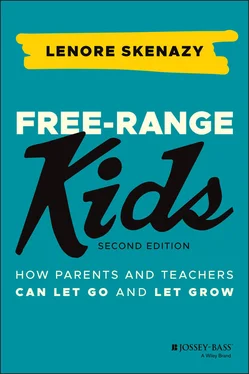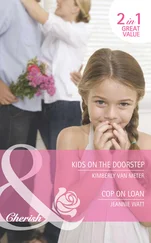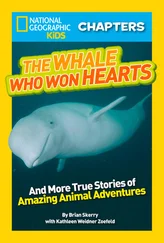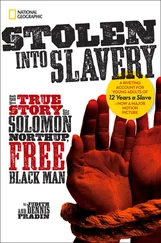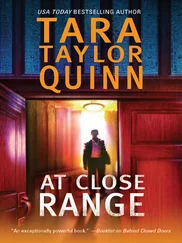I'm not quite sure why this activates my gag reflex, but it has something to do with the fact that we are hereby expected to notice, cheer, and physically record every wonderful little deed our kid does that day, and then repeat it back, like the king's vizier. “First, my Lord, you woke up and did proceed not to throw your binky across the room. Huzzah, huzzah. Then, my Lord, when it was time for the day's morning repast, you did splendidly wield your spoon like a big boy …”
Without that litany, would the king end his day feeling like a winner? Perhaps not. Do you want to raise a kid who needs to hear his accomplishments reiterated every night as he gazes at the physical record of his wonderfulness?
Just asking.
Then there are books telling us how to communicate with our kids—and not just basic advice like “Try not to yell very much.” No, they tell you the exact words, like you're a bumbling amateur who needs a script to say the right thing … or else. Some of these books read like they're giving advice on how to navigate a tricky job interview. So in a book with the really promising title Am I a Normal Parent? there's a whole section on how not to quash your child's will to live when he asks if you like the picture he drew.
“How do you respond?” asks the book. “One way to help your child trust your response would be to take a minute or so to really look at the drawing and then, instead of commenting on the final product, say something about the process. For example, you might say, ‘I like the way you drew a black circle around the sun to make it stand out. I also like the red shirt on the boy in the picture. It reminds me of the shirt you wore to your last birthday party.’ This will help your child feel like your response was not a lie or a brush-off, but an honest reflection of what you have seen.”
So I guess “That's beautiful, hon!” makes them think we're total liars and the world is a stinking cesspool of phonies? Really—I can see where the author wants to help parents relate to kids, but it seems to me that the more worried we are about the ramifications of every remark we make, the more stilted we become. We are not relating to our kids as kids. We are relating to them as complicated cakes we have been given to make, and if we don't follow the recipe exactly—a recipe given to us in painstaking detail by an expert chef angling for a TV baking show—the whole thing will collapse.
That same book has a whole page about whether to tell your child the tooth fairy is hooey—a topic parents have grappled with ever since winged ladies roamed the earth. Why do we suddenly need an expert telling us how to broach this touchy subject? Or any subject? Or every subject? Including—let me rant for another paragraph or two—a whole tome on potty training?
The Potty Training Answer Book asks many of the questions you may or may not have been wondering about, including, “What books and videos should I choose for my child's potty library?”
Her what?
You know—a how-to library filled with picture books like I Want My Potty, It's Potty Time, and even, I kid you not, What to Expect When You Use the Potty . (Thankfully, not for pregnant women.) The Potty Training Answer Book lists a full twenty books you might want to get your child about the issue.
And six videos.
Is your child studying for an advanced degree in Potty Studies? Has she been invited to present the prestigious “Scatological Preschooler” lecture at Oxford? I got through a college course on twentieth-century Russian history with less reading. But the Answer Book then suggests some “favorite potty training resources.” Because twenty books and six videos are just not enough.
Simply bringing the kid into the bathroom and plopping her on the toilet is not an option anymore. And simply asking your friends, “What worked for you?” is now considered about as sensible as asking them, “How would you perform a triple bypass?” It's not that potty training is such a breeze—I know it's fraught with frustration, and, for the record, I did give my kids Everyone Poops and some picture book my sister sent me, so it's not like I braved it alone. But when an author starts telling you not only to read potty books aloud to your child but to “extend your child's favorite potty stories and songs into everyday play situations” and to “use hand puppets, finger puppets or spoon puppets to have a conversation about potty training” and also to “retell stories from books and videos while you are driving in the car or walking to the store” and then to make your kid his own “personal potty book” complete with photos Of Him to “increase his self-awareness” so he can “reflect on the images,” and on and on, and this whole one-hundred-plus-page volume is considered a sane and helpful reference book rather than the feverish ravings of a bibliophilic, paid-by-the-word, bathroom-crazed, puppet-pushing potty brain—clearly, we are depending way too much on experts who make us think we have to do way more than necessary to help and understand and ultimately save our kids.
Where did this bizarre reliance on these folks come from? And can we wean ourselves off it?
Jillian Swartz, co-founder of the online magazine Family Groove , believes it all started the same way the Food Network did, sort of.
“Every ten years or so,” says Swartz, “a new, once-mundane job becomes deified. Think: Chefs in the nineties and handymen and home decorators in the two thousands.” About twenty or thirty years or so ago, another lowly job suddenly became chic: motherhood. (And, to a lesser extent, fatherhood.) “With this,” says Swartz, “came the fetishization of every last mother-loving detail of parenthood, and an ever-burgeoning breed of experts to propagate this often mind-numbing minutiae. Pile on top of that the rise of Citizen Media and all the (mis)information online and we're all just swimming aimlessly in the murky waters of child-rearing do's, don'ts, who's, what's, how's, when's, and why's.”
The avalanche of expert advice—and non-expert advice with nonetheless very enticing headlines—undermines our belief that we are equipped with enough common sense to deal with most child-rearing issues. That battered confidence, in turn, leads us to look ever more desperately to the experts wherever we find them. At the library. In parenting magazines. On our phones. But a lot of those experts give advice so daunting and detailed and frankly non-doable (does anyone really want to spend the day retelling potty stories with the aid of a spoon puppet?) that we feel like failures.
Then when—surprise—our kids turn out not to be perfect, we know who's to blame. Us! If only we'd made one more pretend forest out of broccoli spears, our kid would be a veggie fiend. If only we'd put aside that deep-fried Oreo in our second trimester, she'd be in the gifted program at school. And if our child is cranky? Uncommunicative? Headed for five to ten years’ hard labor? That just might be because we told her, “Look, sweetie, a broken cracker is not the end of the world!” instead of saying, “Oooh, your cracker broke. Sad sad sad sad sad!” and respectfully relating.
The experts told us what to do, and we screwed up.
So what's the alternative? Reading every book and article and trying to do absolutely all the stuff they recommend? (She asked rhetorically.) Or avoiding the experts entirely and perhaps missing out on some good advice?
Well, it's obviously somewhere in the middle, according to a bona fide expert on experts, Dr. Stephen Barrett. Barrett is board chairman at Quackwatch, a non-profit group that examines the health advice being given to the public and flags the information that is scientifically unproven—or just plain wrong.
Читать дальше
